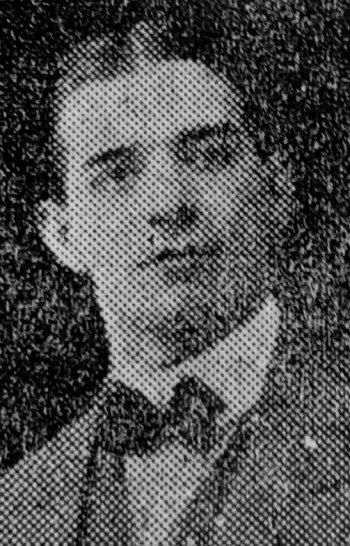Mexborough and Swinton Times May 11, 1918
A Mexboro’ Medallist.
Decorated At Home.
Two Nights in the Enemy Lines.
Winstanley on Local Apathy to Heroism.

On Saturday evening in the primitive Methodist Schoolroom, the occasion being used to present a private Clement Allen (West Riding regiment) of Main Street Mexborough, the Military Medal he won at Bullecourt in April 1917
Private Allen, who is at present stationed at Rugeley, after being wounded in the battle of Cambrai last November, was given special leave
The presentation was made by Councillor Humphreys chairman of the Mexboro’ Urban Council, presided
There was a very disappointing agenda and Councillor W. Winstanley commented severely on the apathy and indifference displayed by the local public to the stirring deeds and the sterling merits of their own brave townsmen. He said that if he did not believe that Mexboro’ people were sound at heart, in spite of all appearances to the contrary, he would despair of them and would not appear among them any more than he was obliged to. He believed, however, that it was mere thoughtlessness which led all these people to neglect so pointedly on the duty of greeting a Mexboro’ hero. All we could do was to hearten these men for their terrible duties and trials, but we could do that and we ought to do it. It had been a pleasure to him to negotiate with the military authorities for the local presentation of Pte. Allen’s medal, and he was proud to be present to see one of his old schoolboy decorated.
He was also proud to know that hundreds of lads who had been through his hands were now dong a man’s part in this terrible fight for freedom. (Applause.)
Pte. Allen gave a modest but graphic account of the incident which won him the Military Medal.
He aid that it was at Bullecourt on April 13, 1917, that he was told off with a sergeant and another man to explode a Bangalore torpedo in the enemy’s wire, immediately in front of their key position. They got the torpedo in position, but the patent fuse failed to act, and the flash merely served to draw the attention of the enemy.
They were at once bombarded and the ground swept with rifle and machine-gun fire.
The sergeant retired, but Pte. Allen’s comrade remained with him. They held close to the wire, taking what shelter they could, and: when they next ventured to turn their attention to the torpedo they found a German out on patrol had located it, and was endeavouring to drag it through the wire.
Pte. Allen dragged it back and without further ado fused it with a match. He took refuge in a shell-hole, and his comrade made off to the British lines. In attempting to follow him he lost his way and was about to jump into a trench when three Germans came past, and he realised just in time that he was b{:hind the Gorman lines. He remained there for two nights, lying perdu in the day-time. He had no food, and only the slimy water of the shell-holes for drink. He never gave up trying to locate the British lines, and at length, in his wanderings, he came upon a patrol of Australians, who informed him that a search patrol had been out; after him on both nights. The Australians directed him safely back. “I detested the thought of being taken prisoner,”
Pte. Allen said, as he concluded his narrative; “I felt I would rather die.’
Councillor Humphreys said he should always have pleasure in associating with his term of office as chairman of the Mexborough Council the privilege of presenting ng a medal well and bravely earned. (Hear, hear.) They were all very anxious to see an end of the miseries and the sacrifices of war, but they were even more anxious to see an end of the spirit which brought forth the war.
Among the many revelations of the war was this side of British character so splendidly exemplified by Pte. Allen. It was that side of the British character which was going to do a great deal to defeat and confound the authors of the war. (Hear, hear)
Our hearts went out in sympathy to all the families who were suffering loss or anxiety, and he hoped that time’ was not far distant when Mexboro’ would be able to contemplate in earnest the provision of some tangible token of their recognition of all that had been endured and suffered for them by their townsmen in the fighting Forces. (Applause.)
Councillor Humphreys then made the presentation amid enthusiasm, and Pte. Allen made his acknowledgments. The ceremony was attended by Pte. Allen’s’ father, Mr. Harry Allen, and by his sister, Mrs. Mitchell (Miss Edith Allen), who sang several songs.
Others who contributed to the enjoyment of the evening were Seaman Harry Bucknall (whose narrative of his experiences in Germany is printed elsewhere in this issue), Mr. Mark Oxby (elocutionist), and Mr. Goulder Hamilton (humourist). Mr. W. P. Turner was the accompanist.
On the motion of Councillor Humphreys, the artistes were heartily thanked.